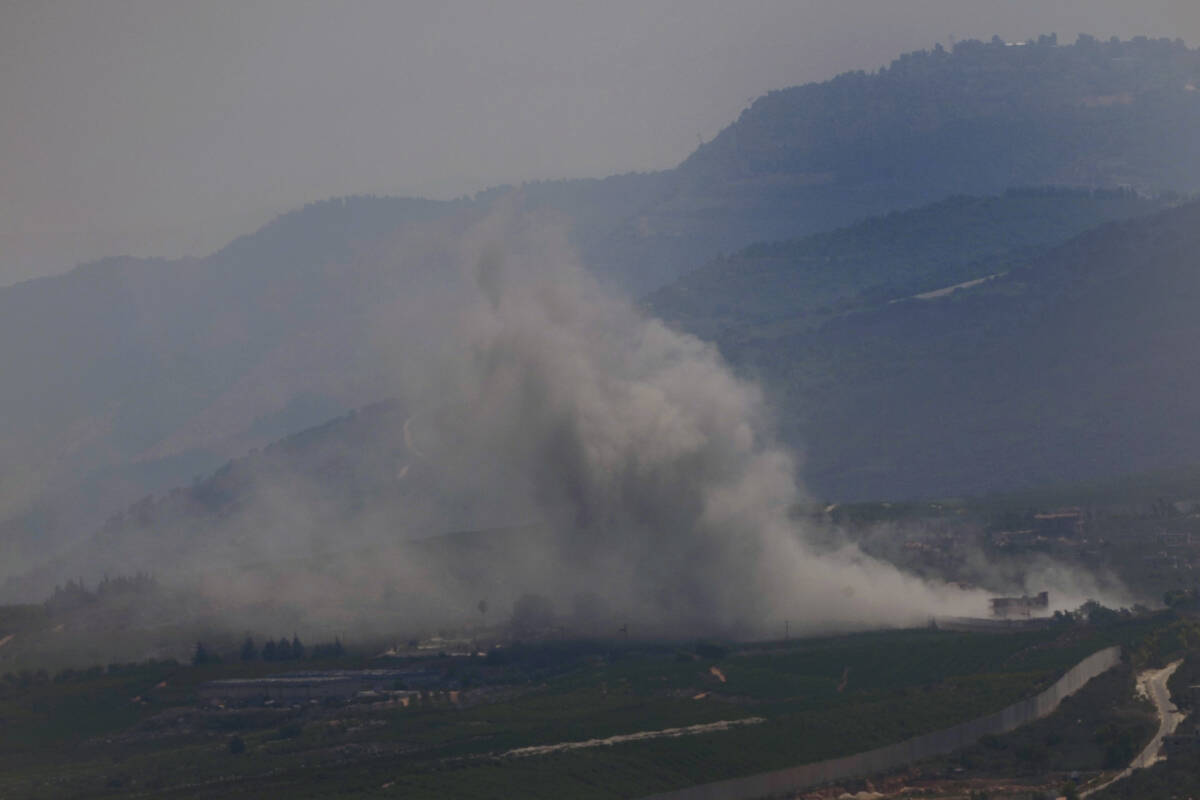U.N. demands halt to escalating attacks between Hezbollah, Israeli forces
UNITED NATIONS — The U.N. Security Council on Wednesday demanded a halt to the increasing attacks between Lebanon’s Hezbollah militants and Israeli forces and warned that further escalation “carries the high risk of leading to a widespread conflict.”
Israel and Iran-backed Hezbollah terrorists pulled back after an exchange of heavy fire across the U.N.-drawn boundary between Lebanon and Israel over the weekend. But their decades-old conflict is far from over and regional tensions linked to the war in Gaza are still high.
The Security Council demand that Israel and Hezbollah halt hostilities — which is not legally binding — came in a French-drafted resolution unanimously approved by its 15 members, urging the “relevant actors” to restore “calm, restraint and stability.”
“The risk of open warfare remains real, and we are mobilized alongside our regional and international partners to avoid a regional conflagration,” France’s deputy U.N. ambassador, Nathalie Broadhurst, said before the vote.
Israel’s U.N. ambassador, Danny Danon, told reporters that he had a message for the Lebanese people: “You and your government have a choice to make, confront Hezbollah today or watch as your country is dragged into chaos and destruction.”
Lebanon’s representative, Hadi Hachem, thanked the council after the vote for its clear message “in favor of stability and a cease-fire.” And he urged members: “Let’s work together, not only to end the escalation” but toward “a just and comprehensive peace.”
The resolution extended for another year the mandate of the U.N. peacekeeping force in Lebanon known as UNIFIL, which was created to oversee the withdrawal of Israeli troops from southern Lebanon after a 1978 invasion and has been there ever since.
The Security Council expanded the mission after a 2006 war between Israel and Hezbollah so that peacekeepers could deploy along the Lebanon-Israel border to help Lebanese troops extend their authority into their country’s south for the first time in decades. That resolution also called for a full cessation of Israeli-Hezbollah hostilities, which has not happened.
During the ongoing clashes between Hezbollah and Israeli forces in southern Lebanon, UNIFIL facilities or vehicles have been hit by shelling or gunfire on several occasions. Earlier this month, UNIFIL said three peacekeepers on patrol were lightly injured when an explosion happened near their vehicle.
Israel’s Danon blamed Hezbollah for launching unprovoked attacks against Israel starting the day after Hamas’ Oct. 7 terrorist attacks in southern Israel, which ignited the war in Gaza. Since then, he said, more than 8,000 rockets, 300 explosive drones and 1,500 anti-tank missiles have been launched against Israel, forcing over 60,000 Israelis in the north to leave their homes.
Danon accused Hezbollah of firing from southern Lebanon — within UNIFIL’s area of operations — in violation of the 2006 cease-fire resolution and showed the council photos that he claimed were near some of its facilities.
There will be no stability while Hezbollah’s “massive military buildup” is ignored, he said.
Israel is determined to return its civilians to their homes, and while it favors diplomacy, Danon warned that “time is running out.” If diplomacy fails, “we will use all the necessary means to restore calm and stability to the north of Israel,” he said.
Israeli ally the United States supported Israel’s right to defend itself against Hezbollah attacks.
“Lebanon should not be a haven for terrorist organizations or a launch pad for attacks against Israel,” U.S. Deputy Ambassador Robert Wood told the council, saying that Iran is violating the arms embargo in the 2006 resolution by providing Hezbollah with the majority of weapons it fires against Israel.






















